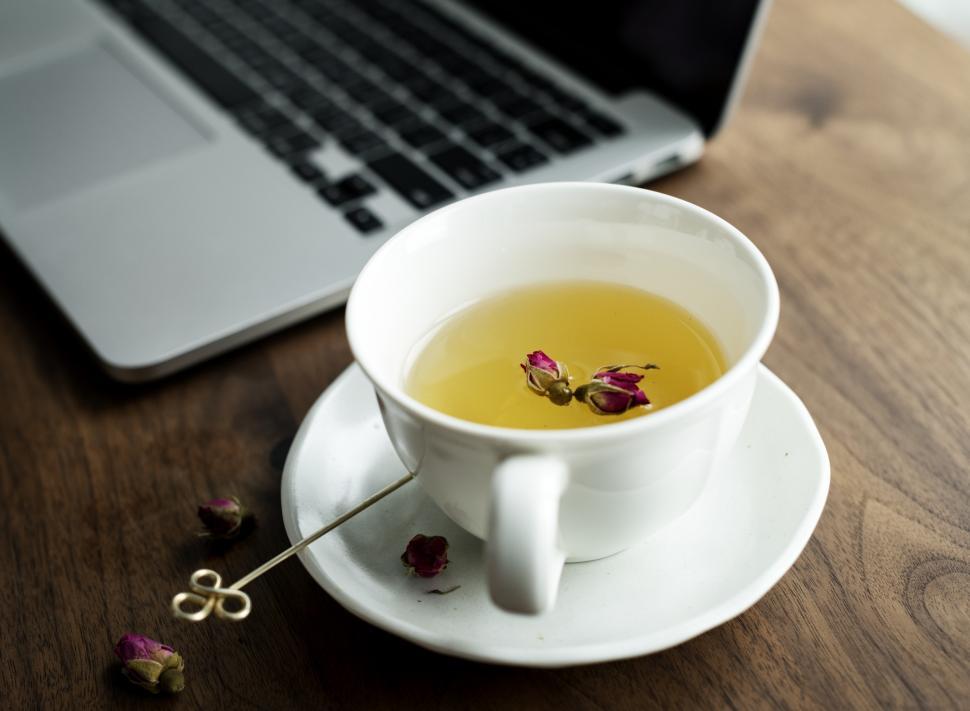
Brew Your Way to Better Health: The Gut-Boosting Power of Herbal Teas
- Oct 10, 2025
In our quest for gut health, we often overlook one potent, ages-old remedy. In your kitchen larder or local grocery, hidden amongst unassuming canisters of tea, sit weapons of wellness. Herbal teas, steeped with plant power, serve not just as warming, comforting beverages but as allies for your gut health. The main ingredient? Herbs, flowers, and other plants – the unsung superheroes of digestion and gut improvement. Perhaps the mighty peppermint or dandelion tea has already caught your attention - we tip our hats to its acclaimed digestive benefits, including bloating reduction and digestion improvement.
Science backs the claims of herbal tea fanatics. Some teas, for instance, chamomile, are veritable nemeses for nausea and vomiting, particularly those spun by the tempest of pregnancy. Partner-in-crime, ginger, also proves adept at combating nausea, vomiting, bloating, and stomach distress induced by motion sickness, pregnancy, and chemotherapy. One might even say ginger is a bit of a show-off, flexing its power to decrease the amount of acid produced in your stomach, thus thwarting the nasty, upward flow of acid causing heartburn and indigestion. For those wrestling with gastroesophageal reflux disease (GERD) symptoms, ginger may offer relief, courtesy of its ability to expedite stomach emptying, reducing discomfort and heartburn risk. Of course, further research is needed for definitive proof, but until then, we'll give ginger a tentative thumbs-up.
Herbal teas are more than just digestion-friendly. They're avid inflammation fighters. To illustrate, ginger and peppermint teas have been known to curb bloating, with thanks to ginger's compounds called gingerols and shogaols that accelerate stomach emptying. Other teas, such as gentian, contain digestive enzymes and acids that may streamline digestion. This tea, rooted from specific flowering plants, carries the potential to stimulate appetite and palliate abdominal discomfort.
Meet our other potion-driven plant stars: dandelion and fennel. Dandelion tea, a nectar born from the common weed's greens, harbors compounds that enhance gastric motility and digestion. Research illustrates that fennel, whether consumed raw or steeped as tea, is rich in antioxidants that may descend the risk of stomach ulcers in animals - though we still need human focused studies.
To tackle ulcers, look no further than marshmallow root-infused herbal tea. The complex carbohydrate within marshmallows stimulates mucus-producing cells lining the gastrointestinal tract, leading to increased mucus production that protectively coats the stomach and reduces damage. Meanwhile, herbal tea with senna – an herb that encourages smooth muscle contractions in the colon – might diminish constipation risk. Similarly, fennel tea promotes bowel movements and dwindles constipation risk. However, don't brew these teas daily unless your healthcare provider gives a thumbs-up, as diarrhea may result.
Drinking herbal tea presents few risks for most people – but always consult with your healthcare provider first, particularly if you're pregnant or breastfeeding. Certain herbs may induce contractions and heighten the risk of preterm labor. Some herbs may also interfere with your prescription meds or lead to side effects. As always, honest conversation with your healthcare provider or pharmacist before embarking on a new herbal tea course is essential.
In addition to herbal tea, several natural remedies can boost your gut health. So put down the latest dieting book, and instead, brew a cup of nature’s goodness. Herbal teas – the tongue-in-cheek, no-BS answer to better health.






